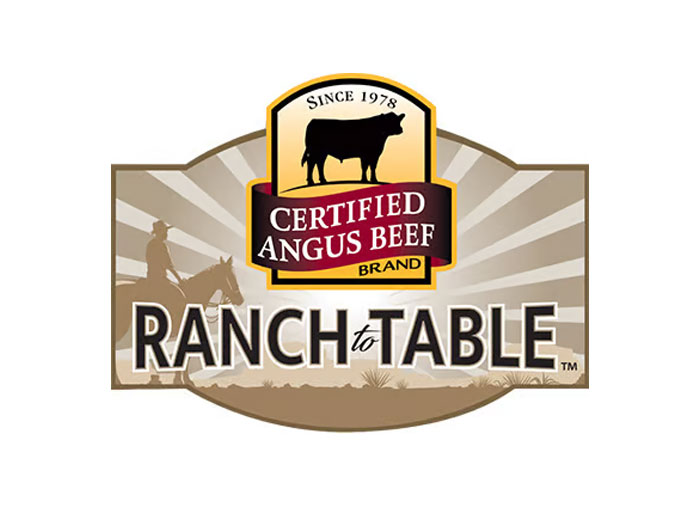Certified Angus Beef Launches Direct-to-Consumer Program
September 8, 2023 | 2 min to read
Angus farmers can now market their beef under the Certified Angus Beef® (CAB) brand through a new initiative called Ranch to Table. This program allows ranchers using registered Angus genetics to take advantage of CAB's reputation, ensuring their cattle meet specific quality standards. Participants must be Beef Quality Assurance certified and adhere to CAB's live-animal evaluation. This initiative not only offers financial opportunities but also enhances the value of their beef products while maintaining brand integrity. Interested ranchers can learn more at cabcattle.com/ranch-to-table.

Could your freezer beef carry the Certified Angus Beef ® (CAB) brand logo? Perhaps. With the launch of a new program, Angus farmers and ranchers have the option to market their beef directly to consumers as CAB product.
Ranch to Table, a direct partnership program between CAB and cattle operations using Angus genetics, allows ranchers to use the brand’s trusted reputation for increased gain.
“Many Angus ranchers take a tremendous amount of pride when they see the Certified Angus Beef logo on product, whether it’s in their local grocery store or on a restaurant menu,” says Kara Lee, director of producer engagement for CAB. “This is just another way for them to continue to have equity in the brand by being able to hang brand standards on those cattle that ultimately qualify.”
To participate in the Ranch to Table program, a producer’s cattle supply must incorporate registered Angus genetics, which may require American Angus Association® active membership or proof of bull registrations. Producers must also be Beef Quality Assurance certified.
As with any CAB product, cattle must meet the brand’s live-animal evaluation with a predominantly solid-black hide. In addition, carcasses must meet CAB’s 10 specifications.
“One of the beautiful things about the Ranch to Table program is that the end product itself is going to be just as consistent with the end product of other traditional CAB outlets,” Lee says. “So, we are not compromising on any of our brand standards.”
Typically, cattle move from feedyard to a CAB-licensed packing plant and then are distributed to the end-user. With the Ranch to Table program, licensed producers are responsible for working with a processor and USDA grader to verify that brand specifications are met. A marketing plan is required for the application process, but upon being licensed, producers will have access to a tool kit and marketing resources to use in leveraging the brand’s quality.
“For some, direct-to-consumer beef merchandising is an expanded financial opportunity. Perhaps it’s the opportunity for the next generation to come back and join the family business,” Lee says. “A lot of members have years of carcass data that supports the quality of the cattle they are raising. Previously, we didn’t have an infrastructure that allowed them to access CAB-brand merchandising, and the Ranch to Table initiative allows us to do just that.”
The program is not restrictive solely based on the quantity of cattle a producer would process. Instead, CAB will evaluate the business’ operating plans and marketing approach for the beef produced.
“Ultimately, we’re looking to put an asset in the toolbox of registered Angus breeders—something that allows them to add value to their own product or to the calves they’re purchasing back from customers whose genetics tie to the breeder’s own operation,” says Lee.
Farmers and ranchers interested in becoming part of the Ranch to Table program should visit cabcattle.com/ranch-to-table for more information or to begin the application process.
